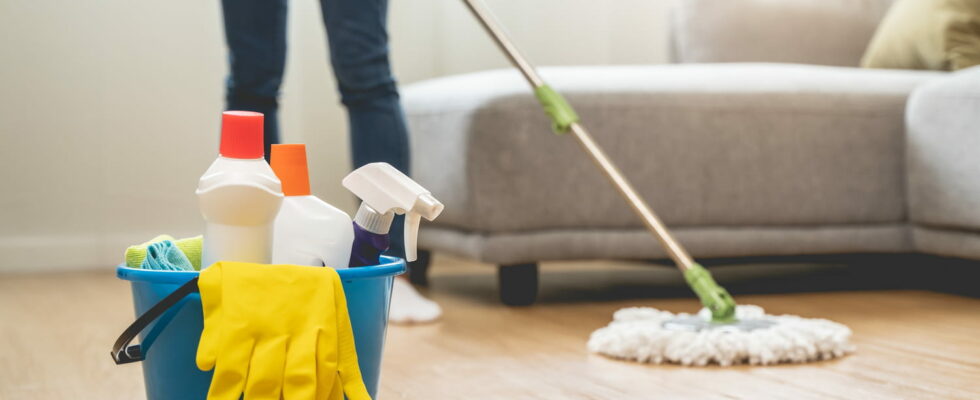Many people use these products to clean their floors. This is a mistake, they can irreparably damage the coatings. Here are the 4 products to absolutely avoid.
Having a clean home requires discipline. Everyone has their favorite tips and products to get everything clean and sparkling. Among the recurring tasks, cleaning the floor is essential to maintaining a clean and welcoming home. Many people stick to a similar cleaning routine every time, no matter the floor covering. But be careful, experts warn that using certain products on your floors can do more harm than good and could even cause a lot of damage in the long run. Here are the four common cleaning products to absolutely avoid on your floors at the risk of damaging them irreparably.
First of all, white vinegar. If you are one of those people who likes to have a single product to clean everything, white vinegar is a solution, it can clean almost everything in the house. But be careful with certain coverings. It should not be used on marble, granite and natural stone floors. Acids can dissolve the calcium carbonate present in these materials, causing holes, cracks and irreversible stains. Even on less sensitive surfaces such as tiles, excessive use of acidic cleaners can damage the joints and make the tiles more fragile. The same goes for raw wood floors, unwaxed floors such as vinyl or linoleum, because vinegar can dull and darken their surface.

Lemon juice is also a great natural cleaner for the home. However, it is not suitable for floors as the acidic properties of lemon can damage the coating, like white vinegar. Be careful when removing stains with lemon juice from unfinished wood floors as it can also alter the colour and character of the flooring. If you use lemon juice to clean your floors, use it in small amounts with water.
Bleach is a powerful disinfectant, but it can be extremely harsh on many types of floors. When used on wood floors, it can remove the protective finish, cause discoloration, and even damage the wood itself. On vinyl or linoleum floors, bleach can weaken the material, making the floor more susceptible to tears and cracks. For tile surfaces, while bleach can clean effectively, regular use can cause grout to deteriorate.
Ammonia is often used to remove stubborn stains and embedded dirt. However, it can cause significant damage to wood, marble and natural stone floors.
